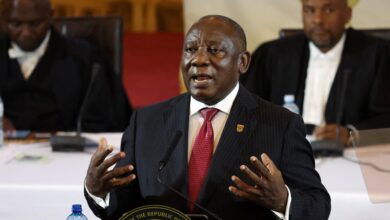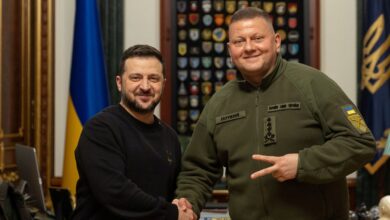
After ratification by Turkey, Hungary is the only country left effectively holding up Sweden’s NATO membership.
Swedish Prime Minister Ulf Kristersson has agreed to meet his counterpart from Hungary, the only NATO member yet to ratify his country’s membership in the military alliance.
Swedish public television on Thursday published a letter Kristersson penned to Prime Minister Viktor Orban in which he said he accepted an invitation received this week to meet in Budapest “at a time convenient for both of us”.
“The completion of the ratification process of Sweden’s NATO membership in the Hungarian parliament will create a solid foundation to move ahead in our bilateral relationship, and to reinforce mutual understanding and trust,” Kristersson said in the letter.
He added that “a more intensive dialogue between our countries would be beneficial”, noting they would also have the opportunity to speak in Brussels on February 1 at a meeting of the European Council.
The publication of the letter comes a day after Turkey’s parliament approved Sweden’s NATO membership. President Recep Tayyip Erdogan is expected to add his signature in the coming days.
Kristersson said after the vote in Ankara that Sweden was “one step closer” to joining the alliance.
In a post on X on the same day, Orban wrote that his country supports Sweden’s membership and said he would urge lawmakers to approve its accession quickly.
Just finished a phone call with @NATO Secretary General @jensstoltenberg. I reaffirmed that the Hungarian government supports the NATO-membership of #Sweden. I also stressed that we will continue to urge the Hungarian National Assembly to vote in favor of Sweden’s accession and…
— Orbán Viktor (@PM_ViktorOrban) January 24, 2024
But on Thursday, Hungary’s parliamentary speaker, Laszlo Kover, said there was no urgency in backing Sweden’s NATO membership bid.
“I do not feel any particular urgency. Moreover, I do not think there is an extraordinary situation,” Kover said.
Finland became the 31st member of the alliance in April, which doubled the length of NATO’s border with Russia. It also strengthened the defences of three small Baltic countries that joined the bloc after the collapse of the Soviet Union more than three decades ago.
Sweden and Finland both had a lengthy history of military non-alignment harkening back to the Cold War. However, Russia’s invasion of Ukraine rocked ties on the continent and changed their policy.
Both Orban and Erdogan maintain relatively friendly relations with Russia.




